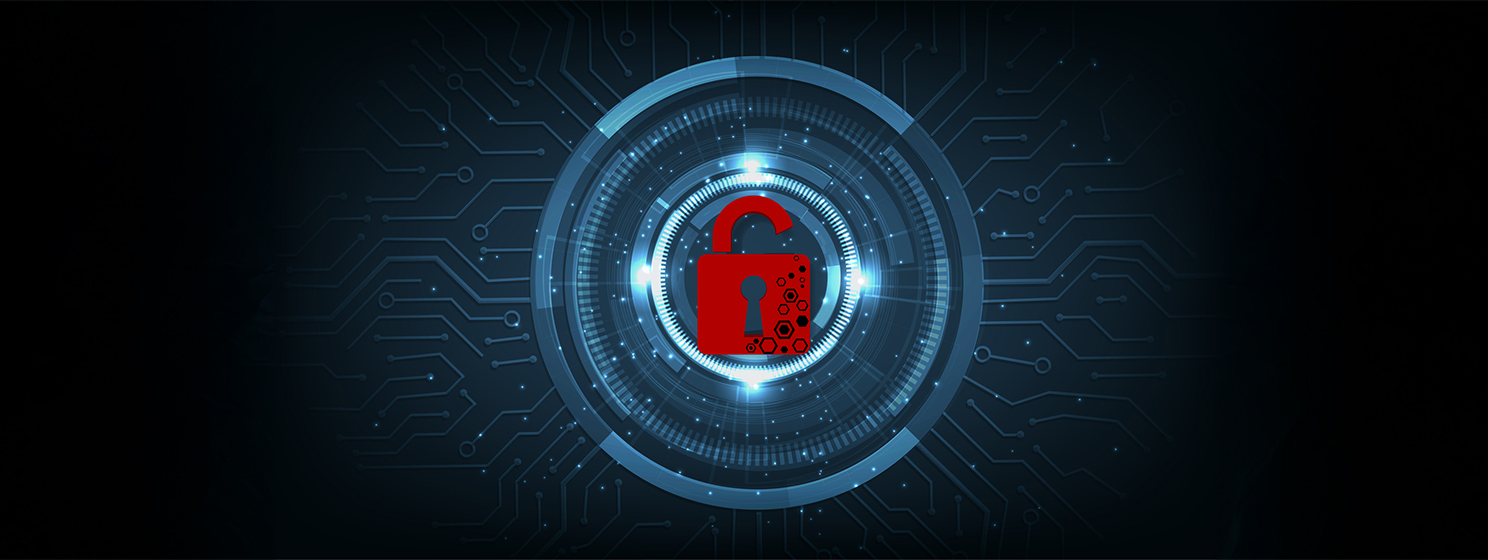As digital infrastructure becomes increasingly critical, driven by the rise of AI and interconnected systems, enterprises and governments face a dual imperative: safeguarding their data against sophisticated cyber threats while ensuring compliance with complex data sovereignty regulations.

This post is a guest contribution by George Siosi Samuels, managing director at Faiā. See how Faiā is committed to staying at the forefront of technological advancements here.
As digital infrastructure becomes increasingly critical, driven by the rise of AI and interconnected systems, enterprises and governments face a dual imperative: safeguarding their data against sophisticated cyber threats while ensuring compliance with complex data sovereignty regulations. Data breaches, ransomware, and phishing schemes are not just operational risks—they threaten the very fabric of stakeholder trust, with governments facing the added burden of national security and citizen confidence. The stakes have never been higher.
Data sovereignty—ensuring that sensitive data stays within a nation’s borders—has become a focal point for organizations worldwide. Yet, as these entities strive to protect data integrity while fostering innovation, traditional solutions often fall short. The answer lies not just in technology, but in a holistic approach that marries decentralized systems with a culture-centric mindset.
The dual challenge of cybersecurity and data sovereignty
For enterprises in regulated industries such as finance, healthcare, and critical infrastructure, the task of maintaining robust cybersecurity while navigating stringent data sovereignty laws is a delicate balancing act. Governments, on the other hand, must not only protect national data but also create environments that foster technological innovation and economic growth.
A central concern for both sectors is keeping data secure and compliant across borders without compromising accessibility and performance. Here, decentralized technologies like blockchain and distributed ledger systems (DLT) are emerging as viable solutions. Blockchain’s core attributes—transparency, immutability, and decentralized control—make it well-suited to mitigate cybersecurity risks while adhering to local and international regulations. For instance, PwC reports that enterprises increasingly adopt blockchain to protect data privacy, streamline compliance processes, and secure cross-border transactions. However, not all blockchains are created equal.
One of the critical factors when considering a blockchain solution is scalability. Many popular blockchains still struggle with throughput limitations, high transaction costs, and congestion issues that hinder their application at an enterprise or government scale. This is where scalable solutions, like BSV, offer a competitive advantage. BSV’s focus on high throughput, low transaction costs, and efficient data handling makes it a suitable option for organizations that need robust, scalable infrastructure to support global operations. With its ability to handle thousands of transactions per second, BSV offers the kind of scalability that allows enterprises to confidently integrate blockchain into their broader digital ecosystems without facing bottlenecks or exorbitant fees.
Building secure digital communities
A critical step towards addressing cybersecurity and data sovereignty is the creation of secure, trust-based digital communities. Traditional security measures are no longer adequate against modern threats such as AI-generated scams and deepfake impersonations. Blockchain offers a more resilient foundation, enabling organizations to build secure networks where data integrity and privacy are integral to the system.
One of our colleagues at Faiā, who led Fraud & Scam Detection at a major Australian financial institution, saw firsthand how AI-driven scams were evolving to target vulnerable communities. Socially isolated individuals, those with limited financial literacy, and people from migrant backgrounds were frequently targeted by sophisticated scams involving automated, fraudulent calls, deepfake impersonations, and social engineering on platforms like Instagram and Facebook (NASDAQ: META). Scammers often misuse the trusted branding of major companies to deceive people into investing in fake products.
In such scenarios, decentralized, scalable, and reliable blockchain networks like BSV could have significantly reduced the risk. By leveraging self-sovereign digital identities and decentralized verification processes, blockchain systems empower individuals to securely verify their identity without relying on potentially compromised third-party services. Deloitte notes that blockchain’s tamper-proof infrastructure can support self-sovereign identities, thereby reducing identity theft and fraudulent activities. Scalable platforms such as BSV not only ensure that these verification systems can operate smoothly under high demand but also do so cost-effectively, making them accessible for broader deployment. This is especially beneficial for vulnerable communities—like the elderly or those with lower financial literacy—by adding an extra layer of protection against AI-driven scams.
Aligning culture with cybersecurity
While technology provides a strong defense, it is only as effective as the culture that supports it. According to KPMG, a major challenge is ensuring that cybersecurity protocols are integrated into the organizational culture so every department contributes to the overall security strategy. During her time at the bank, our Faiā colleague recognized that robust technical defenses must be reinforced by a company-wide cultural shift. She led initiatives that focused on internal education and cross-departmental communication, ensuring that every team member—from frontline staff to leadership—understood the risks and their role in safeguarding data.
This approach fostered a culture of collective responsibility, where employees were empowered to recognize and respond to potential threats proactively. Enterprises can learn from this experience by embedding security into their organizational culture, making it a shared responsibility rather than a siloed function.
At Faiā, we emphasize the importance of this
The above is the detailed content of The Dual Challenge of Cybersecurity and Data Sovereignty: A Holistic Approach. For more information, please follow other related articles on the PHP Chinese website!
 Top stocks to buy into the Web 3.0 boomAug 29, 2024 pm 09:59 PM
Top stocks to buy into the Web 3.0 boomAug 29, 2024 pm 09:59 PMThe internet is entering a new phase, known as Web 3.0, which shifts power from centralised technology giants towards individual users
 Bitcoin Core 28.0 Upgrade Released to Boost Decentralization and SecurityOct 08, 2024 am 03:22 AM
Bitcoin Core 28.0 Upgrade Released to Boost Decentralization and SecurityOct 08, 2024 am 03:22 AMThe Bitcoin (BTC) development team released the Bitcoin Core 28.0 version on October 5, 2024. The new upgrades aim to boost the decentralization and security of the Bitcoin network.
 Theta Token (THETA): Transforming the Video Streaming IndustrySep 11, 2024 am 09:11 AM
Theta Token (THETA): Transforming the Video Streaming IndustrySep 11, 2024 am 09:11 AMTheta Token (THETA) is transforming the video streaming industry by decentralizing delivery and enhancing user experience. Unlike traditional systems, Theta's peer-to-peer network improves streaming quality, reduces costs, and rewards participants. D
 Cardano Releases GraphQL 8.2.2, Charles Hoskinson Focuses on Decentralized GovernanceSep 11, 2024 am 03:40 AM
Cardano Releases GraphQL 8.2.2, Charles Hoskinson Focuses on Decentralized GovernanceSep 11, 2024 am 03:40 AMCardano, a smart contracts platform and one of the many alternatives to Ethereum, continues to make strides. Days after activating the highly anticipated
 Anthony Albanese announces cabinet reshuffle, Tony Burke the new Minister for CybersecurityJul 29, 2024 pm 12:16 PM
Anthony Albanese announces cabinet reshuffle, Tony Burke the new Minister for CybersecurityJul 29, 2024 pm 12:16 PMAustralian Prime Minister Anthony Albanese announced his anticipated Cabinet reshuffle on Sunday, July 28, 2024. He named Tony Burke MP the new Minister for Cybersecurity
 The Dual Challenge of Cybersecurity and Data Sovereignty: A Holistic ApproachNov 04, 2024 pm 06:36 PM
The Dual Challenge of Cybersecurity and Data Sovereignty: A Holistic ApproachNov 04, 2024 pm 06:36 PMAs digital infrastructure becomes increasingly critical, driven by the rise of AI and interconnected systems, enterprises and governments face a dual imperative: safeguarding their data against sophisticated cyber threats while ensuring compliance wi
 MakerDAO Rebrands as “Sky,” Introduces New USDS Stablecoin and SKY Governance TokenAug 28, 2024 pm 06:36 PM
MakerDAO Rebrands as “Sky,” Introduces New USDS Stablecoin and SKY Governance TokenAug 28, 2024 pm 06:36 PMOn August 27, MakerDAO, a leading name in decentralized finance (DeFi), announced its rebranding as “Sky” as part of its broader strategy to enhance the protocol’s scalability and accessibility.
 Sui Name Service (SuiNS) Will Become a Decentralized ProtocolAug 10, 2024 am 06:44 AM
Sui Name Service (SuiNS) Will Become a Decentralized ProtocolAug 10, 2024 am 06:44 AMSui Name Service or SuiNS launched on the main net in 2023 has gone through major updates a few months ago. This time, it brought more interesting news for its community.

Hot AI Tools

Undresser.AI Undress
AI-powered app for creating realistic nude photos

AI Clothes Remover
Online AI tool for removing clothes from photos.

Undress AI Tool
Undress images for free

Clothoff.io
AI clothes remover

AI Hentai Generator
Generate AI Hentai for free.

Hot Article

Hot Tools

EditPlus Chinese cracked version
Small size, syntax highlighting, does not support code prompt function

SublimeText3 Chinese version
Chinese version, very easy to use

DVWA
Damn Vulnerable Web App (DVWA) is a PHP/MySQL web application that is very vulnerable. Its main goals are to be an aid for security professionals to test their skills and tools in a legal environment, to help web developers better understand the process of securing web applications, and to help teachers/students teach/learn in a classroom environment Web application security. The goal of DVWA is to practice some of the most common web vulnerabilities through a simple and straightforward interface, with varying degrees of difficulty. Please note that this software

PhpStorm Mac version
The latest (2018.2.1) professional PHP integrated development tool

Dreamweaver CS6
Visual web development tools






